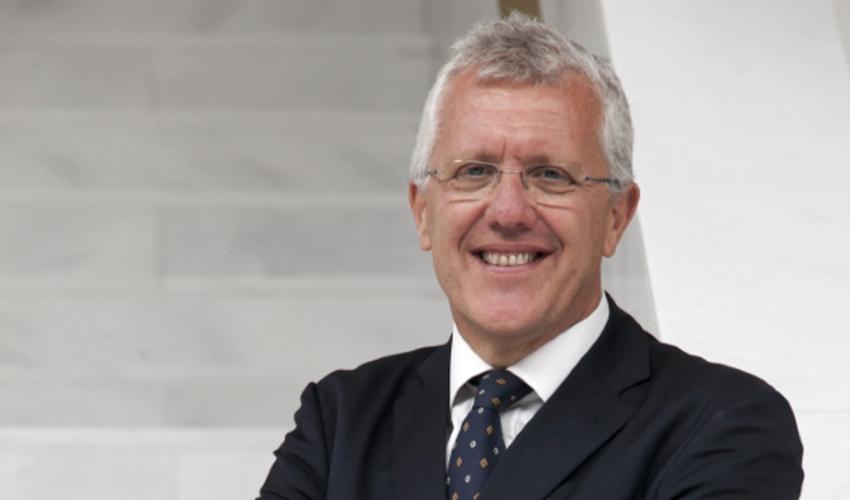
Once Upon a Time There Was the Barcode. And There Still Is
INTERVIEW WITH ALBERTO FRAUSIN, BOCCONI ALUMNUS AND HEAD OF GS1 ITALY, THE ASSOCIATION THAT GATHERS COMPANIES MAKING AND SELLING CONSUMER PRODUCTS"The future is about technology and data. And nobody knows this better than the consumer goods industry ". Alberto Frausin, 61, Bocconi alumnus and CEO of Carlsberg Italia, might surprise those thinking that innovation comes from hi-tech industries rather than good old large-scale retailing. This manager from Vicenza says this on the back of 40 years of experience in the industry, which has led him to take the role as president of GS1 Italy, the association gathering over 35,000 companies producing and distributing consumer products, and which for some time has devoted itself to promote the acquisition and sharing of data information across the supply chain of a product, from its inception to the final purchase.
➜ GS1 is known as the barcode association... How much is this folk definition still true?
GS1 was founded 50 years ago in America by the common will of US wholesale distributors to arrive at a universal coding for their products. The barcode came to Italy a few years later, first introduced by the Esselunga supermarket chain, and today it is widespread in the near totality of consumer goods companies. The barcode has crossed the boundaries of supermarket shelves and is now widely used in publishing, healthcare, credit industries, and still has ample margins of diffusion. Suffices it to say that in Germany, for example, hospital patients also have a barcode associated to them, as do the medicines they take.
➜ The digitization of processes increases the need for standards. What will become of the barcode?
The need for a common language linking production, logistics and distribution is acutely felt. Think about all the talk about the blockchain: the only way to really monitor the product or process chain from manufacturing to consumption is to have a unique standardization code. It is not just about competitive advantage: it has become a survival imperative, because it means being able to talk with everyone. I cannot say whether in the future it will still be the barcode or something that evolves out of it. For example, Decathlon applies RFID technology to all its products, even inside stores; if a t-shirt is tried on several times in the dressing room, but then is not purchased, the feedback about the lack of appeal of the product arrives to the parent company immediately, and not after months of market research. Let's think about what this could mean for the food industry, and more in general for all the Made in Italy products: it would mean additional possibilities to certify the origins of products and the way they were crafted, so that companies would be able to give additional protection to the quality of their products and sell them for a better value.
➜ If that is the future, the present of the association is represented by the Immagino project and the fledgling Allineo program. What goals do you have with these two campaigns?
Immagino has the photographs of about 100,000 products in its database, which cover more than 80% of Italian mass consumption. A database that enables our research observatory and companies to analyze the most relevant trends. For example, with respect to the gluten-free category, we are able to analyze how many products there are, how much they increase by number or price, what is the actual consumption, what marketing effects the gluten-free label has on consumer behavior. It is a magnifying glass that is useful for all companies, because it is true that today nothing can be invented, but being able to imitate well is already a great start. And that’s not easy. Allineo instead is an electronic catalog which includes all the information related to the packaging and handling of products: by 2020, in order to complete an order or organize a transport, there will be intelligent systems talking to each other rather than people.
➜ For a company, how is it important to have a good data manager?
This is a fundamental position in any company, because the future lies in technology and data. The challenge is knowing how to collect them but above all turning them into valuable information. But I think this should not only be the goal of an individual company but of the industry as a whole, which must be able to speak a common language to align itself with the emerging circular economy which combines all of the stages of a product, from production to transport, from logistics to distribution, down to consumer purchase and waste disposal.
by Emanuele Elli
Translated by Alex Foti
